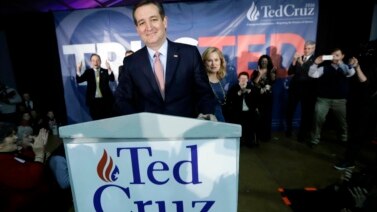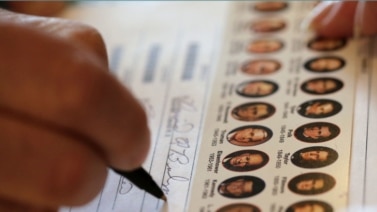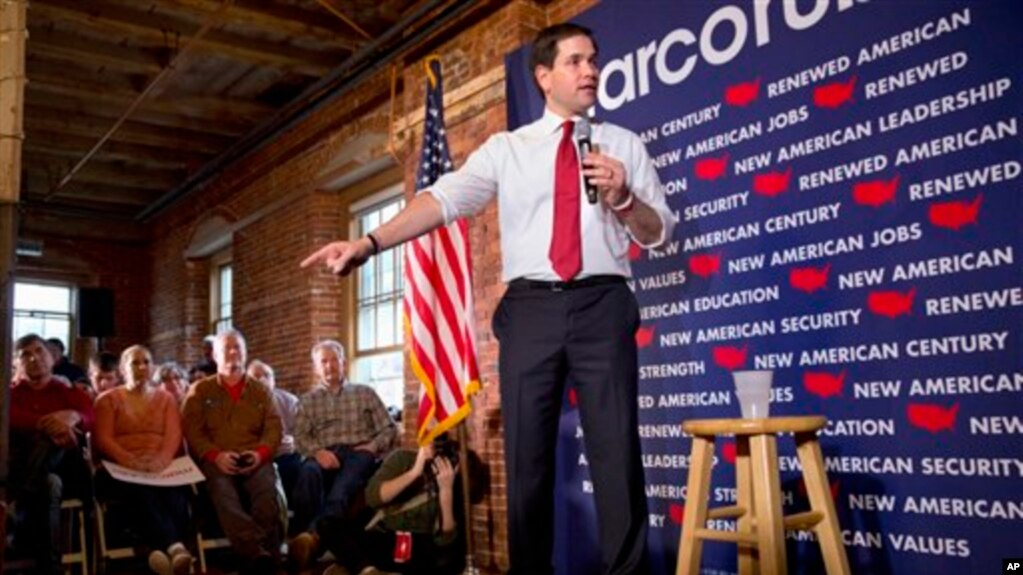
Iowa voters surprised political experts Monday.
Senator Ted Cruz of Texas finished first in the state’s Republican caucuses. This surprised many observers who expected businessman Donald Trump to win the most support.
But Trump finished second. Trump finished in front of Senator Marco Rubio of Florida. Cruz and Rubio are first-term senators.
After his second place finish in Iowa, Trump congratulated Cruz and Rubio. “On to New Hampshire,” he said. The presidential candidates are in the New England state this week. New Hampshire will hold its presidential primary election on Tuesday.
More candidates leave the race
Because of what happened in Iowa, there are now two less candidates seeking the Republican presidential nomination.
Senator Rand Paul of Kentucky suspended his campaign Wednesday after finishing with less than 5 percent of the vote in Iowa. On Monday night, former Arkansas Governor Mike Huckabee dropped out of the race after winning only 2 percent of the Iowa vote.
Many others are seeking the Republican presidential nomination. They include Dr. Ben Carson, former Florida Governor Jeb Bush, businesswoman Carly Fiorina, Ohio Governor John Kasich and New Jersey Governor Chris Christie.
On the Democratic field
In Iowa’s Democratic caucuses, former Secretary of State Hillary Clinton defeated Senator Bernie Sanders of Vermont by less than 1 percent.
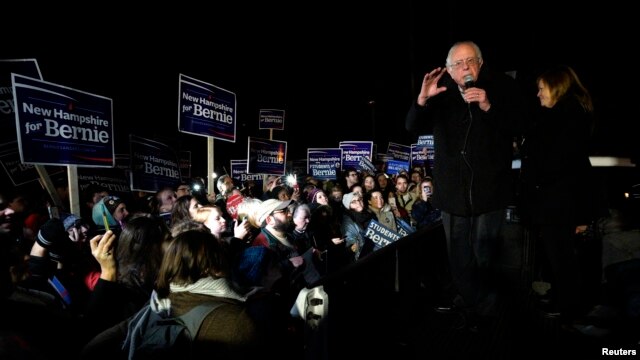
A third candidate, former Maryland Governor Martin O’Malley, dropped out of the race Monday night after a poor showing in Iowa.
In the New Hampshire primary, Clinton will be the underdog to Sanders. He represents the state of Vermont, New Hampshire’s western neighbor.
Two other Democratic presidential votes take place later this month in Nevada and South Carolina. RealClearPolitics.com says studies of likely voters show Clinton far ahead in both states.
Grant Reeher teaches political science at Syracuse University in New York. He said this about the Democratic race:
“Iowa showed the social movement that is behind Sanders’ campaign is real, and it is going to be a force in the campaign in the long term.” However, Sanders remains “a long shot to actually win the nomination,” he added.
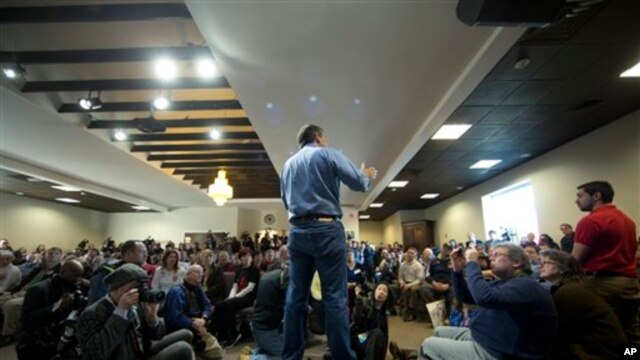
Here is what other political observers are saying:
"The loss (in Iowa) raises the possibility that Mr. Trump’s strength is at least partly an illusion,” wrote Nate Cohn in the New York Times. “He may not be quite as strong as he looks,”
“Meet Ted Cruz, your new front-runner,” added Glenn Thrush in Politico.
Rubio’s strong third-place finish puts him in the position to claim the Republican establishment vote, some experts wrote.
“He over-performed expectations,” wrote Amber Phillips in the Washington Post. “And for that, Rubio, perhaps almost as much as Cruz, can call Monday a win.”
I’m Anne Ball.
Jim Malone reported on this story for VOANews.com. Bruce Alpert adapted his report for Learning English. George Grow was the editor.
We want to hear from you. Write to us in the Comments Section or share your views on our Facebook Page.
Words in This Story
caucus – n. a meeting of members of a political party for the purpose of choosing candidates for an election
underdog – n. a person that is likely to lose a contest
illusion – n. something that looks or seems different from what it is
agenda – n. a list of things to be considered or done
tuition – n. money that is paid to a school for the right to study there
